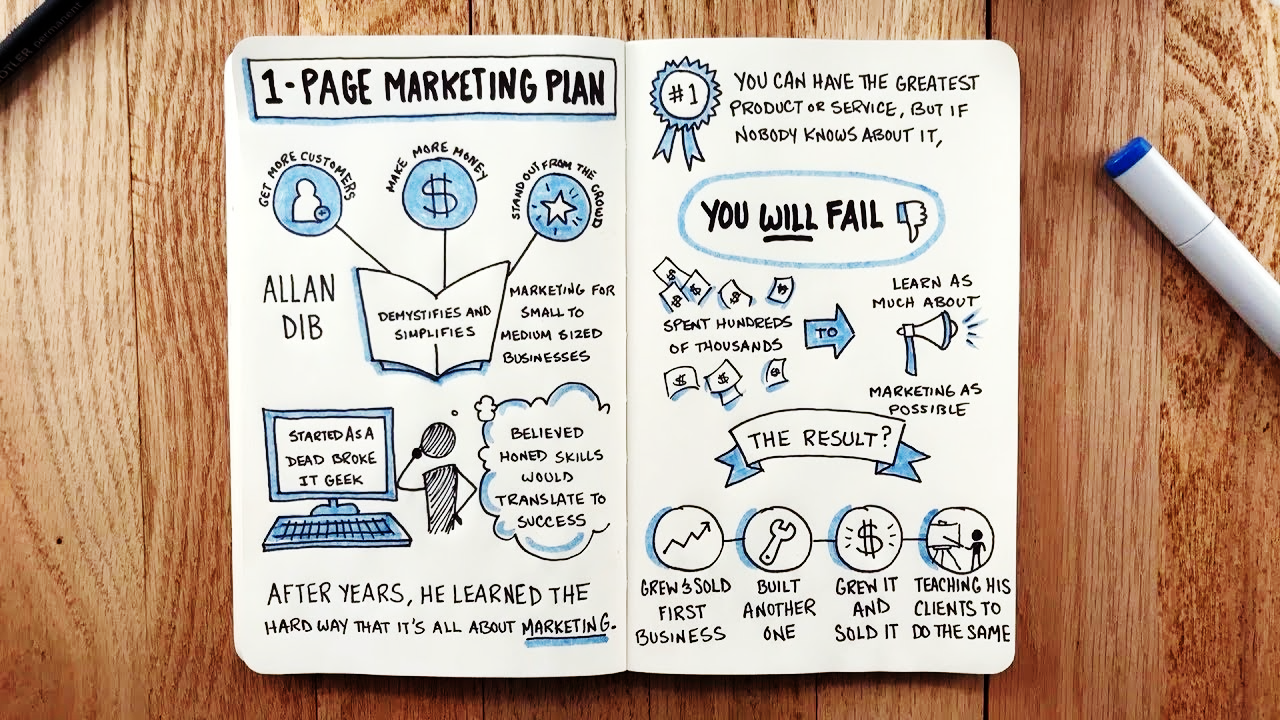The Power of Business Marketing: A Brief Overview

In today’s fast-paced, competitive world, business marketing is more critical than ever. It’s the driving force behind brand visibility, customer engagement, and business growth. Whether you're a small startup or an established company, an effective marketing strategy is essential for reaching your target audience, building relationships, and driving sales.
1. Understanding Your Market
Successful business marketing begins with a deep understanding of your market and target audience. Knowing who your customers are, what they need, and how they behave helps in crafting personalized messages and campaigns. This involves researching customer demographics, behavior, and pain points to ensure your offerings meet their specific needs.
2. Creating a Strong Brand Identity
Your brand identity sets you apart from competitors. It’s not just your logo or color scheme, but the overall perception people have of your business. A consistent, well-defined brand fosters trust and loyalty. To build a strong identity, focus on delivering a clear message, showcasing your unique value, and maintaining consistency across all platforms.
3. Leveraging Digital Channels
Digital marketing has revolutionized how businesses reach their audience. Utilizing platforms like social media, email, search engines, and content marketing allows companies to engage customers more effectively. Each platform offers unique opportunities to connect with audiences, whether through targeted ads, SEO, or interactive social media content.
4. Content is King
In the world of marketing, content plays a crucial role. Valuable, relevant content attracts potential customers and keeps them engaged. Whether through blogs, videos, infographics, or podcasts, high-quality content not only educates your audience but also positions your business as an industry leader.
5. Data-Driven Marketing
Data and analytics are the backbone of modern marketing. By tracking customer behavior, campaign performance, and market trends, businesses can make informed decisions and adjust strategies in real-time. Data-driven marketing enables companies to optimize their campaigns, increase ROI, and deliver a more personalized customer experience.
6. Building Relationships Through Engagement
Marketing is no longer just about selling products; it’s about building relationships. Engaging with your audience on social media, responding to feedback, and providing exceptional customer service all contribute to long-term loyalty. Customers today value brands that listen, engage, and provide value beyond just the transaction.
7. Adaptability and Innovation
In a constantly evolving marketplace, businesses must stay adaptable and innovative. Marketing trends, technologies, and consumer preferences change rapidly, and businesses need to be agile enough to pivot their strategies accordingly. Whether it's adopting new platforms, experimenting with different content formats, or exploring emerging technologies like AI, staying ahead of the curve is key.
Types of Marketing Strategies
Effective marketing is not one-size-fits-all. Depending on your business goals, target audience, and industry, different marketing strategies may work better for you. Here’s a breakdown of some of the most common and impactful types of marketing strategies:
1. Digital Marketing
Digital marketing encompasses all online channels, including social media, email, search engines, and websites. It’s one of the most effective ways to reach a wide audience. Key tactics include:
- Search Engine Optimization (SEO): Improving your website’s visibility on search engines to drive organic traffic.
- Pay-Per-Click (PPC): Running paid ads on platforms like Google and social media to target specific audiences.
- Email Marketing: Sending tailored messages directly to your customers’ inboxes to nurture leads and drive conversions.
2. Content Marketing
Content marketing focuses on creating and sharing valuable, relevant content to attract and engage your audience. Types of content include blogs, videos, infographics, and podcasts. The goal is to educate, inform, or entertain your audience while subtly promoting your brand.
3. Social Media Marketing
Social media marketing leverages platforms like Facebook, Instagram, LinkedIn, and Twitter to build brand awareness and engage with customers. With targeted ads, influencer partnerships, and organic posts, businesses can foster relationships and promote products to a large, active audience.
4. Influencer Marketing
Influencer marketing involves partnering with individuals who have a large following in your niche to promote your product or service. Influencers help build credibility and reach audiences that may be difficult to access through traditional marketing channels.
5. Affiliate Marketing
In affiliate marketing, businesses reward partners (affiliates) for driving traffic or sales through their referral links. This strategy works well for eCommerce businesses and those looking to expand their reach with a performance-based approach.
6. Inbound Marketing
Inbound marketing focuses on attracting customers by creating valuable content and experiences tailored to them. Unlike outbound marketing (which pushes messages out), inbound marketing pulls customers in through SEO, content, and social media. The goal is to build long-term relationships by providing value at every stage of the buyer’s journey.
7. Outbound Marketing
Outbound marketing is a more traditional approach that involves actively reaching out to potential customers. This includes tactics like cold calling, direct mail, TV ads, and billboards. While less targeted than inbound marketing, outbound strategies can still be effective for brand awareness.
8. Event Marketing
Event marketing involves hosting or participating in events like trade shows, webinars, or conferences to engage with customers directly. These events allow businesses to showcase their products, network, and create a memorable experience for their audience.
9. Referral Marketing
Referral marketing encourages your existing customers to refer new customers to your business, often through incentives like discounts or rewards. This word-of-mouth approach is highly effective, as people are more likely to trust recommendations from friends or peers.
10. Guerilla Marketing
Guerilla marketing uses unconventional, creative tactics to generate buzz and capture attention. This type of marketing typically involves low-cost, high-impact campaigns that are designed to surprise and engage audiences in unexpected ways.
11. Brand Marketing
Brand marketing focuses on building and maintaining a strong brand image that resonates with your target audience. It’s more about creating an emotional connection with customers than promoting specific products or services. A strong brand leads to customer loyalty and long-term business success.
12. B2B Marketing
B2B (business-to-business) marketing targets other businesses rather than individual consumers. This strategy often involves longer sales cycles, with a focus on building relationships and providing detailed information through content, case studies, and white papers.
13. B2C Marketing
B2C (business-to-consumer) marketing focuses on directly engaging consumers with tactics that encourage quick decision-making, such as flash sales, discounts, and engaging content on social media.


- Web Development
- Art
- Causes
- Crafts
- Dance
- Drinks
- Film
- Fitness
- Food
- Games
- Gardening
- Health
- Home
- Literature
- Music
- Networking
- Other
- Party
- Religion
- Shopping
- Sports
- Theater
- Wellness




